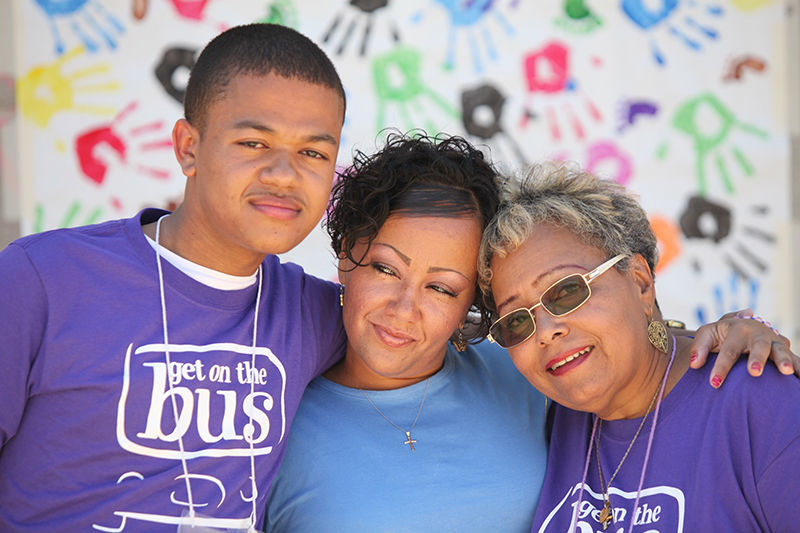Last year the Prison Policy Initiative reported that less than a third of people in U.S. state prisons got a visit from a loved one in a typical month.
“Despite the breadth of research showing that visits and maintaining family ties are among the best ways to reduce recidivism, the reality of having a loved one behind bars is that visits are unnecessarily grueling and frustrating,” wrote the authors of “Separation by Bars and Miles: Visitation in state prisons.”
Sandra Sheridan can attest to that.
On June 25, the 69-year-old grandmother visited her daughter, Terese, in Folsom Prison for the first time in 2 1/2 years. With her was her 18-year-old grandson, Ta’Reek, her daughter’s son whom she has raised. The eight-hour overnight journey from South L.A. was made possible by “Get On The Bus,” which brings children, along with their guardians, from throughout California to visit their parents in prison.
“It means a lot to families who cannot afford any type of transportation to these faraway prisons,” Sheridan points out. “This was the first time we’ve seen her in over two years. It was awesome for my grandson to spend time with her. Because, see, that was the first time he got to touch and hug his mother. He had visited her at other places, but she was always behind glass.”
The yearly trips offer healing to both kids and their incarcerated dads and moms, according to Get On The Bus’s executive director.
“It’s crucial because the children need to know that parents love them, they don’t feel abandoned, they don’t feel neglected,” explains Amalia Molina. “That’s very important. And the parents know that they have children and they want to change for the best.
“So Get On The Bus heals the children, heals the parents. It communicates love.”
Editor's note: This piece is part of Angelus News' "Prison on Parole" edition. Read more about the issue from our editor-in-chief, JD Long-Garcia.

